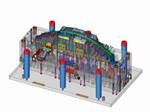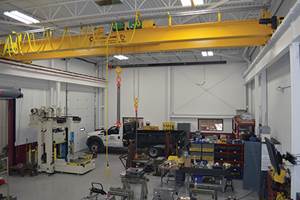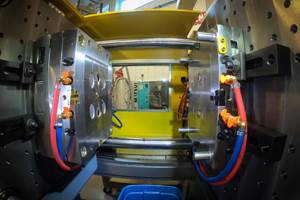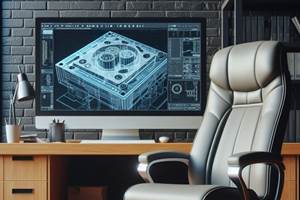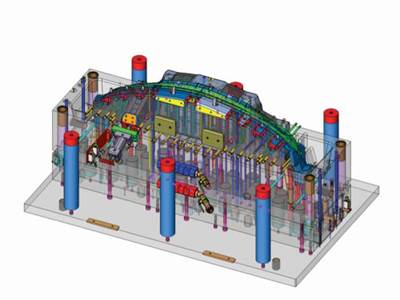Observations on Overseas Tooling
Darcy King of Windsor, Ontario-based Unique Tool and Gauge shares his thoughts on the challenges and compromises of Chinese tooling.
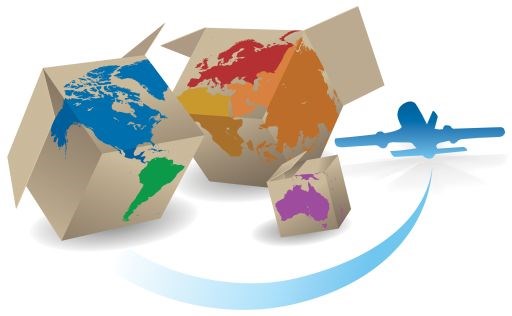
Darcy King president and CEO of Windsor, Ontario-based Unique Tool and Gauge begins a discussion on Chinese tooling and its true cost with an observation: "As a moldmaker, I would be hard pressed to find a North American automotive executive saying that they can reliably source a mold directly to an independent Chinese moldmaker without going through an intermediary and be assured of the same quality, performance, reliability and overall cost-effectiveness over the length of the program, which they can expect to receive any day of the week from their existing North American moldmaker community. I believe most of my Canadian and U.S.-based competitors would probably agree."
To ensure its competitiveness, Unique Tool and Gauge first began looking at China a little more than a decade ago and they saw three paths to take with potential benefits and drawbacks: (1) set up shop in China, (2) establish a joint venture or (3) develop relationships with the existing supplier base and work with them. Unique chose to develop relationships with a number of higher-quality mold builders and it has worked for them, but not without investing a lot of time, effort and pain.
“First and foremost, the ability and wherewithal to supply a good mold from China is no substitute for the continued focus and heavy investment in our North American operations. Margins are less on molds supplied in China, and the related costs and inherent difficulties in maintaining an effective supply chain are not undertaken lightly. We don’t see evidence of fewer molds being bid in China for the jobs we bid on. However, we do see cost differentials tightening. Differences used to be between 40-50 percent in total price, but are now in the 15-25 percent price change. Labor and material costs are also rising, but that’s true in Canada as well," says King.
King does believe that it is better to avoid China altogether than to supply from China just to maintain top-line growth when business is tough locally. He says your cost structure runs the risk of becoming unbalanced and he knows of shops that have gone under for this very reason.
As for reshoring when it comes to tooling, King says the number of RFQs they see requesting China or L.C.C. (low cost country) remains constant or even growing slightly. He estimates that in the last five years 10-15 percent of the finished molds they delivered to automotive customers were sourced in China. The jobs that Unique ends up sending to China tend to be larger molds for which labor costs become a factor and jobs that are not time-sensitive.
He admits there are compromises that need to be made in a decision to source a mold in Asia, including mold design taking longer than it does in North America and inspection revealing the need for mold rework. He notes that the additional time is due to manpower issues and practices.
"Another fact is that the value of a competent individual employee isn’t recognized in China, the same way he or she is here. Turnover is rampant, and it’s not because of job switching and the quest for personal growth, rather it’s the opposite," says King, "Workers come to urban areas in search of jobs and money and then leave those same urban areas and return to their rural home cities and towns when they’ve saved up enough money to do so."
Unqiue's Chinese partners spend a lot of time and energy training and retraining a transient workforce. "What’s more discouraging is that in our experience, the companies we work with don’t even care about retaining and growing talent. To them, the factory worker is an easily replaceable commodity." says King.
When it comes to costs, King explains that when they build a mold in China using their program management system, they become more competitive, but labor still makes up a large percentage of the cost of a new mold, which drives Chinese competitiveness. "Despite the talk of rapidly rising wages in China, there are still significant, almost ridiculous differences between wages in China and North America." says King.
Then there is the issue of materials. In China, the high quality materials North American moldmakers use are not readily available. "If we don’t specify all the materials in total detail, there will be problems. A Chinese P-20 steel equivalent might be 75 percent less than the cost of mold steels we specify, but the quality will be diffferent," says King. So Unique must tightly control all material inventory and obtain certifications at every step to avoid material substitutions. King highly recommends certification audits and metallurgy tests.
Design is different too, says King. "North American shops focus on design for functionality and ease of in-service maintenance and the cultural differences of China typically result in throwing many additional people into the production mix for a tool. This translates into more mold complexity and/or more time consuming mold service back in North America."
Another big difference is the fact that Chinese molders do not guarantee their work as North American shops do, according to King. He notes that this often forces Unqiue to perform multiple trials in China before accepting the mold.
Payment terms vary also. "Chinese molders want to be paid when the mold is shipped," says King. This is vastly different from North American moldmakers who are typically not paid until the mold enters series production.
King believes all of these factors, if considered, help establish the true cost of Chinese tooling, which as it presently stands splits initial mold cost and the cost to service that mold during production operations into two distinct and separate categories, which are not analyzed in concert with one another. This means OEMs end up counting their savings on mold acquisition instead of focusing on the finished piece part cost over the life of the program.
Related Content
The Trifecta of Competitive Toolmaking
Process, technology and people form the foundations of the business philosophy in place at Eifel Mold & Engineering.
Read MoreTop 10 Topics to Cover During an ISO 9001 Manufacturing Audit
Take a look at this practical hands-on approach to conducting a quality audit.
Read MorePredictive Manufacturing Moves Mold Builder into Advanced Medical Component Manufacturing
From a hot rod hobby, medical molds and shop performance to technology extremes, key relationships and a growth strategy, it’s obvious details matter at Eden Tool.
Read MoreTackling a Mold Designer Shortage
Survey findings reveal a shortage of skilled mold designers and engineers in the moldmaking community, calling for intervention through educational programs and exploration of training alternatives while seeking input from those who have addressed the issue successfully.
Read MoreRead Next
Unique in Every Way
This moldmaker transformed its current processes with a multi-function, universal CAD/CAM solution.
Read MoreReasons to Use Fiber Lasers for Mold Cleaning
Fiber lasers offer a simplicity, speed, control and portability, minimizing mold cleaning risks.
Read MoreHow to Use Continuing Education to Remain Competitive in Moldmaking
Continued training helps moldmakers make tooling decisions and properly use the latest cutting tool to efficiently machine high-quality molds.
Read More

